'Huntington's disease won't stop me having a baby'
- Published
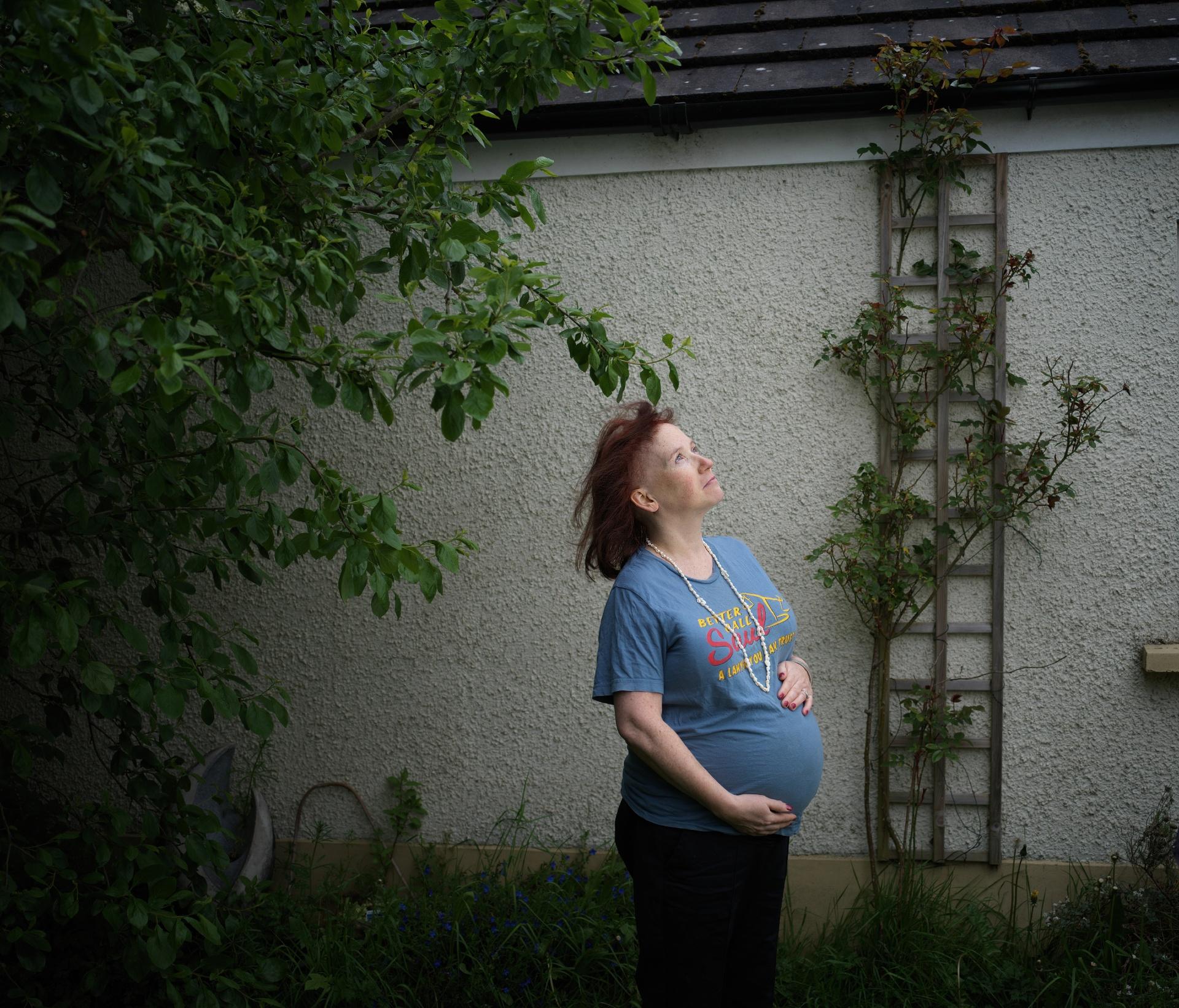
Heather has Huntington's disease and knows that the baby she will give birth to in the coming days may have inherited it too. As Heather's health declines, her husband, Adriaan, will care for her. One day, perhaps 30 or 40 years from now, he may end up caring for their son or daughter too. But both were keen to have a child even so.
When Heather feels low, she likes to bake.
"I love the fact you can smell it straight away," she says.
She reaches back into her happy childhood for inspiration. She credits her pavlova-making abilities to her dad, Richard, who would dollop his perfect white meringue nests on to baking sheets by the dozen.
Best of all, Heather likes to bake her mum Carol's "famous" pink icing buns. They were loved by neighbours - and staff at the school where her mum taught - in their village near Belfast in Northern Ireland.
Sometimes she helped her mum cook them and she now pictures herself baking them with her own child, in the kitchen of their home in the market town just down the road from that village.
Heather is 40 now and still has the recipe she wrote down in her best handwriting when she was eight. Although she knows it off by heart, one day it will fade from her memory, just as it did for her mum, Carol.
Both women inherited Huntington's disease - often referred to as HD - a fatal condition which slowly attacks nerve tissue in the brain and spinal cord.
Over the course of nine years, it slowly robbed Carol of the ability to talk and think, move and swallow, until she died aged 61, in 2007.
"I am so proud of my mum, she was an HD warrior. She was a caring, warm and loving person and I hope my baby will take after her," says Heather.
Carol died without knowing that her daughter had inherited HD too, but she knew there was a 50% chance. Heather and Adriaan's baby will face the same odds - as with all children who are conceived naturally to a parent with the faulty HD gene.
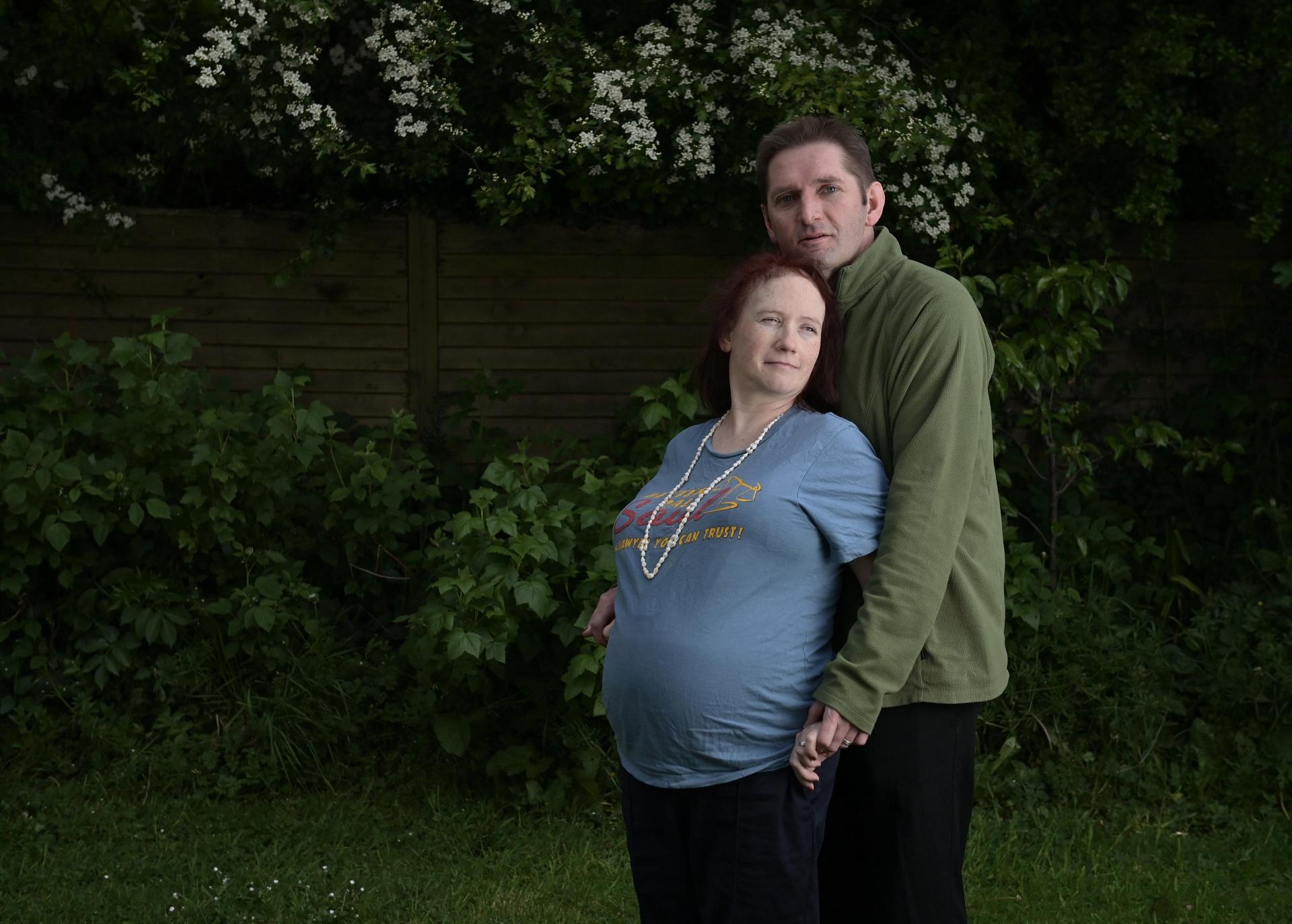
Heather and Adriaan had been trying for a baby before they knew Heather had HD.
In 2016 she was working as an ultrasound technician when she developed symptoms.
"The images I picked up were never quite sharp enough because I couldn't steady my hands," she says.
She knew what was happening, the official diagnosis that followed felt like a formality.
So the couple faced a decision whether to continue to try for a baby or not.
"My first thought was I couldn't put my husband through caring for both me and potentially our child, and the horror of my dying as well as the child," Heather says.
"I had watched my mum die and that was hard enough, so I didn't want to potentially put my husband through that twice."
Her diagnosis cast Heather into a state of depression and initially she and Adriaan put a decision on hold.
But eventually they decided to make enquiries with the NHS about a fertility treatment called preimplantation genetic diagnosis (PGD) IVF. The embryos are tested for the faulty gene ahead of being implanted, so any pregnancy will result in a child that is HD-free.
However, by this stage Heather was 38, two years from the cut-off point for free NHS treatment in her area, and she was told that being slightly overweight would affect the chances of success. The couple then went to a private clinic in Belgium but were eventually told that because Heather already had symptoms of the disease, they couldn't proceed any further.
People have a right to make their own decisions, and there is no blanket good decision or bad decision
Some couples opt to conceive naturally and do a genetic test on the embryo, the idea being that if the test is positive for HD they will have a termination.
But Heather and Adriaan never wanted to take this path.
"We didn't want our child to think that wanting them was on the condition they didn't have the HD gene," Heather says.
They knew that if they did bring into the world a child with the faulty gene its adulthood could be cut short, and this gave them pause for thought. But there had just been major progress in the search for a treatment and in this knowledge they resumed trying for a baby.
Heather hasn't planned exactly how she will broach the subject with her child, "but it wouldn't be as scary a process as it was for me, because of all the scientific advances going on," she says.

A lifting cloud?
In 2017 a research team at University College London was able to silence the faulty HD gene in patients for the first time. An experimental drug, injected into spinal fluid, lowered levels of toxic proteins that kill cells in the brain.
However, in a major setback, two clinical trials were halted last month, external. In the case of one drug it was found that the risks outweighed the potential benefits, while the other failed to significantly reduce levels of the toxic proteins.
"I don't know when this cloud will lift, but I know it gets closer every day and that it will be scientific research, directed at the genetic basis of HD, that does it," Prof Edward Wild says, adding that a number of other drugs are entering promising clinical trials.
"We've already made huge progress and the results of 2017 provided a save-point so we won't be starting at the beginning again."

Sadly, Heather's own deterioration is inevitable.
According to Prof Edward Wild, a consultant neurologist and associate director at the UCL Huntington's Disease Centre, the average lifespan from the onset of movement symptoms is 15 to 20 years, with "significant loss of function from very early on".
Heather and Adriaan are nonetheless hoping to have a number of years bringing up their child together as a happy family of three.
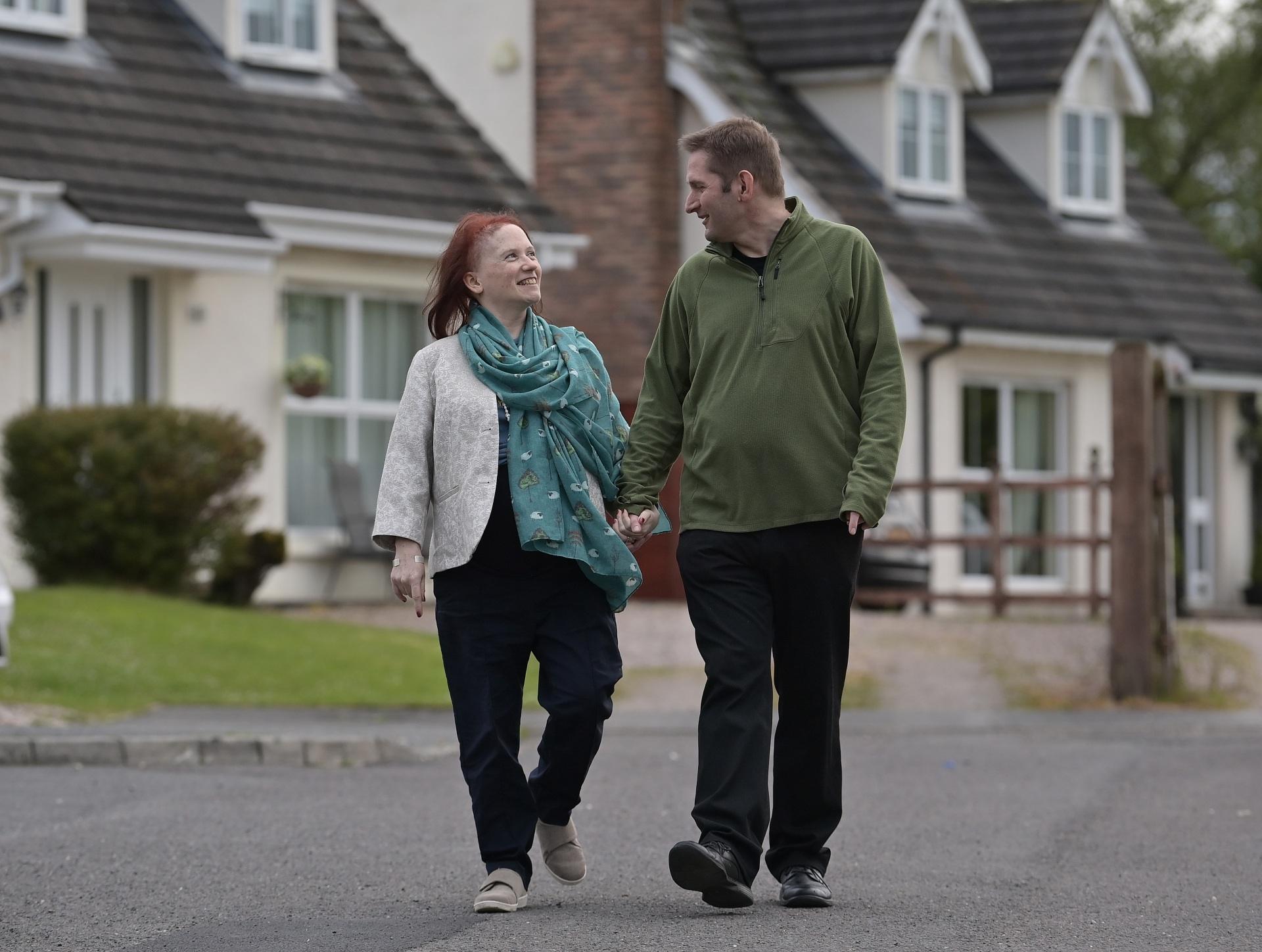
As new parents, Heather and Adriaan will have a lot of local support, both from family and their close-knit community.
But they know that not everyone will be so accepting - particularly when they log on to the internet, where families with Huntington's disease can face a lot of stigma and judgement.
"If you enter any discussion about HD online, one of the things you often encounter is an unthinking carelessness about other people's reproductive decisions," says Prof Wild.
"You'll almost certainly stumble upon people who say - 'Why don't we just sterilise them all?' or 'These people should not be allowed to have children.' It can be quite shocking and borders on historical eugenics-type thinking."
"In reality people have a right to make their own decisions, and there is no blanket good decision or bad decision. It is difficult to raise a child at the best of times and having HD will make it more difficult. But there are parents who don't have Huntington's disease that struggle a lot and there are exceptional parents with Huntington's disease who do a great job."

What is Huntington's Disease?
Huntington's Disease is an inherited condition that stops parts of the brain working properly and is usually fatal within 20 years of the first appearance of symptoms
These include difficulty concentrating, depression, stumbling and clumsiness, involuntary jerking of the limbs and body, mood swings and personality changes, problems swallowing, speaking and breathing
They usually begin between the age of 30 and 50 and gradually get worse over time
There is currently no cure but treatment can help to deal with some of the symptoms
Source: NHS website, external

Matt Ellison, founder of the Huntington's Disease Youth Organisation, has also noticed a tendency for people to make unkind comments.
"Strangers online will tell people with HD to adopt instead - but that literally isn't even an option because in the UK it is very difficult to qualify for adoption if you have the disease," he says.
Matt's dad died from HD in 2012, and he has tested positive for it too, though he is not currently symptomatic. He and his wife qualified for PGD IVF on the NHS, so their three-year-old son does not have the gene.
"That journey to have a child without risk is not easy and many people don't have the options I had," he says.
"Many people go the other route and choose not to get tested. That doesn't make people bad parents, far from it. The main thing is that a child is in a loving family that cares for them."
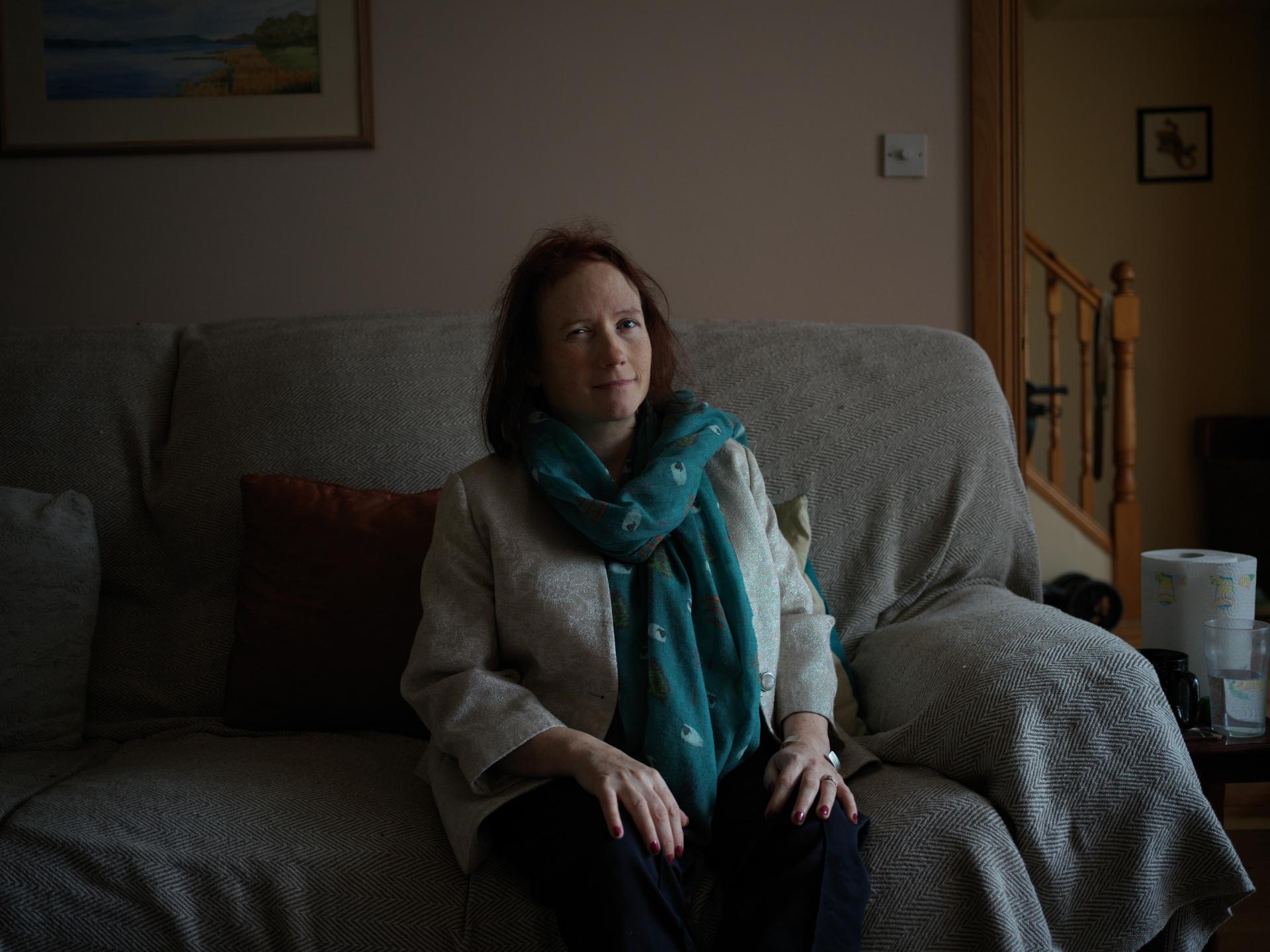
Knowing that Heather's time is limited will make the years spent as a family all the more precious. They won't know whether their child has the gene as tests are only available from the age of 18.
Heather and Adriaan are looking forward to the small joys they might otherwise have taken for granted. Kickabouts in the back garden, eating ice creams in the park, visiting local beaches - and baking.
"I think hope is key to staying positive and humour is my strongest tool to battle HD," says Heather.
"I like to sing Always Look on the Bright Side of Life - I am a big Monty Python fan."
She has begun to slur her words and isn't as mobile as she used to be. Carrying a baby for eight months has added to the tiredness she already felt, and during pregnancy she has come off of some of the medication which helped keep her involuntary movements at bay.
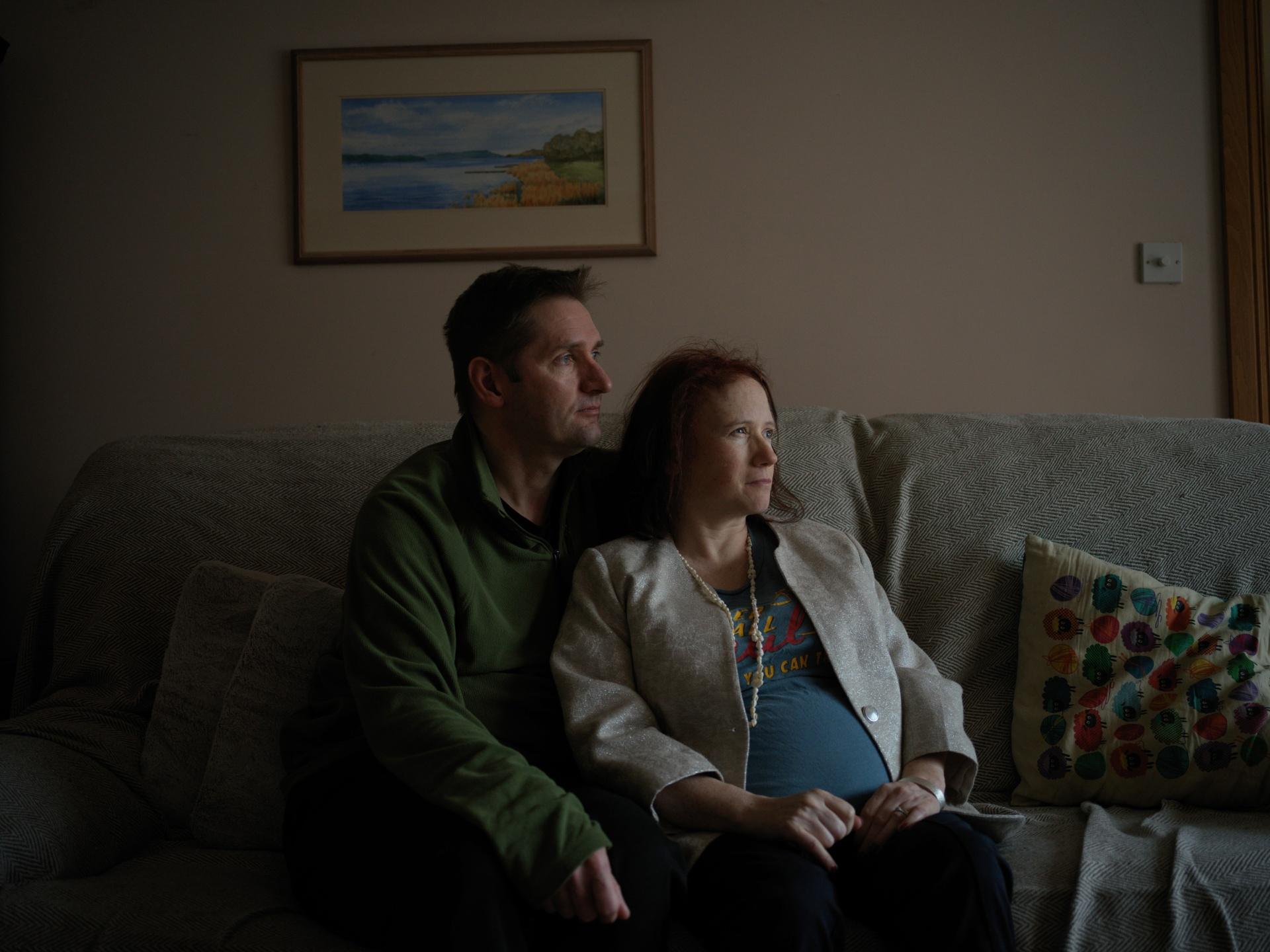
"There's no getting around the fact there will be hard conversations. Growing up, the baby will know that Heather is different from other mummies," says Adriaan.
He has always known that HD could have an impact on their future - Heather told him she might have the faulty gene on their second date.
"Of course, I went home and Googled it straight away," he says. There he found the worst of Huntington's disease.
"You don't see the whole spectrum," he says.
"Even after I met my mother-in-law, at the end stages, the overriding message for me was that there was still so much love there.
"Heather is lovely, and her mother was lovely - and they both had HD. There is a 50% chance our baby will have it too, but I think there is a 100% chance the baby will be lovely and we will be happy as a family."
Adriaan looks to his meringue expert father-in-law, Richard, as a role model.
"He has always been very open about everything to do with HD and I look at how he managed to keep the family together," he says.
"Yes it will be difficult, but it is difficult for lots of families who don't have HD and nobody knows what will happen in the future," he says.
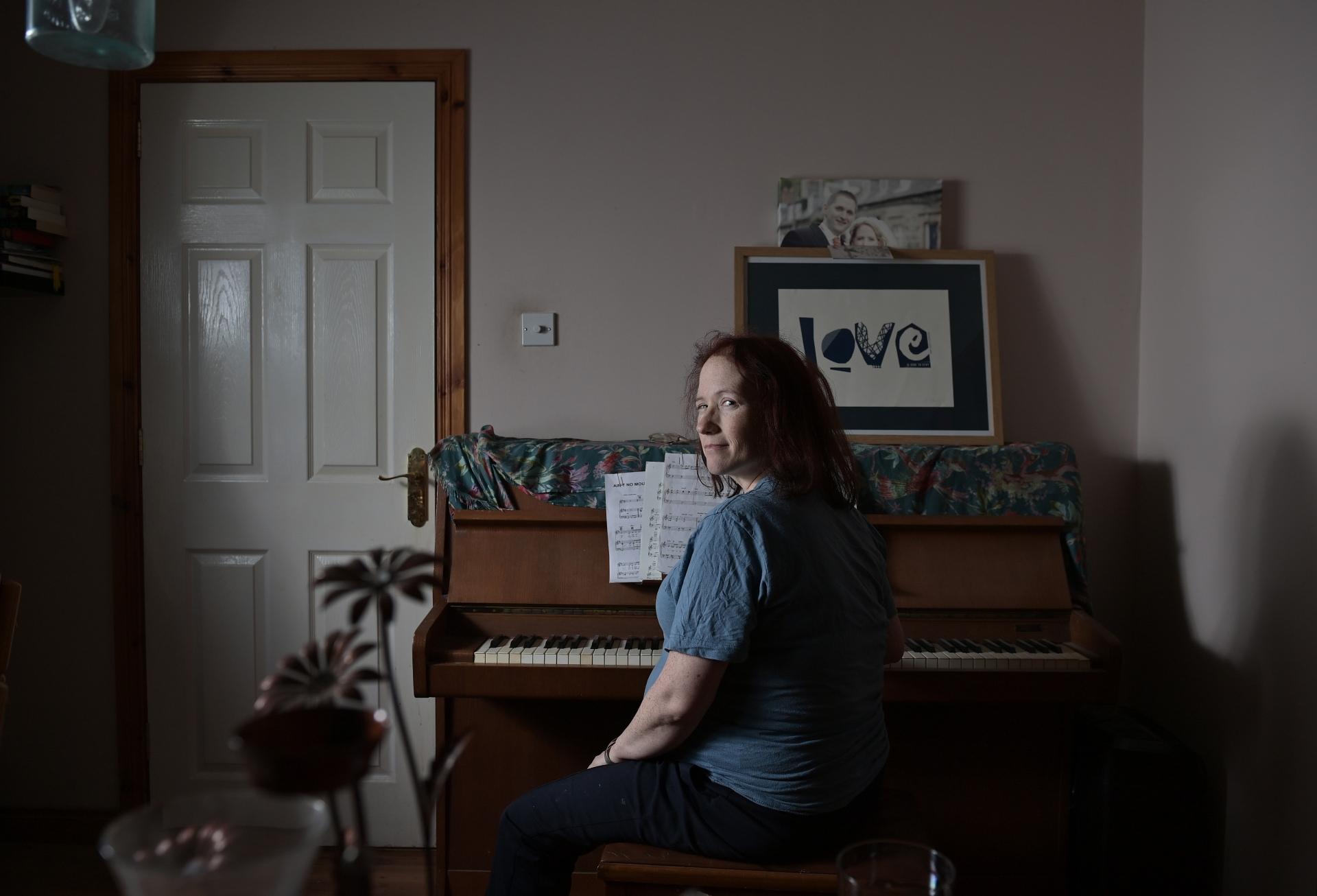
In fact, Adriaan's own dad, Jacob, died of cancer when Adriaan was young. His mother, Teuni also died of cancer, two years ago.
When this happened, Adriaan and Heather took in his mother's elderly cat and shipped over the family piano from Holland. Heather hadn't played for years, but decided to see if she could teach herself again.
"I tried to play some Beethoven that was stuck somewhere in my memory and was able to play that." Then she taught herself some of the piano music from her teenage days - Queen, The Beatles and Guns and Roses.
She believes it is good to do new things, even when you're told to shrink your expectations.
Adriaan has also been making music - singing Dutch lullabies to the baby in the womb, while their rescue cats Gizmo and Diva purr and press their warm furry bodies against Heather's growing bump. The couple would like the baby to be bilingual and it feels like a good place to start.
The new arrival is due within days. Heather and Adriaan can't wait to see whether it is a boy or a girl.
The Huntington's Disease Association, external provides information and support for those living with the illness, and their loved ones
Follow KirstieJBrewer, external on Twitter
You may also be interested in:
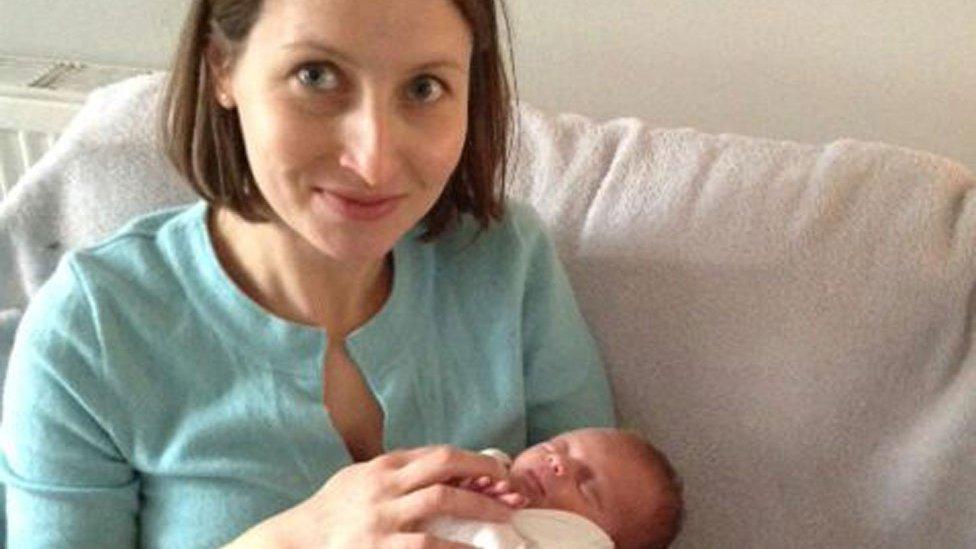
At 29, Ellie Finch Hulme was diagnosed with a condition often associated with much older people - Parkinson's disease. She decided it wasn't going to stop her living her life the way she wanted to.